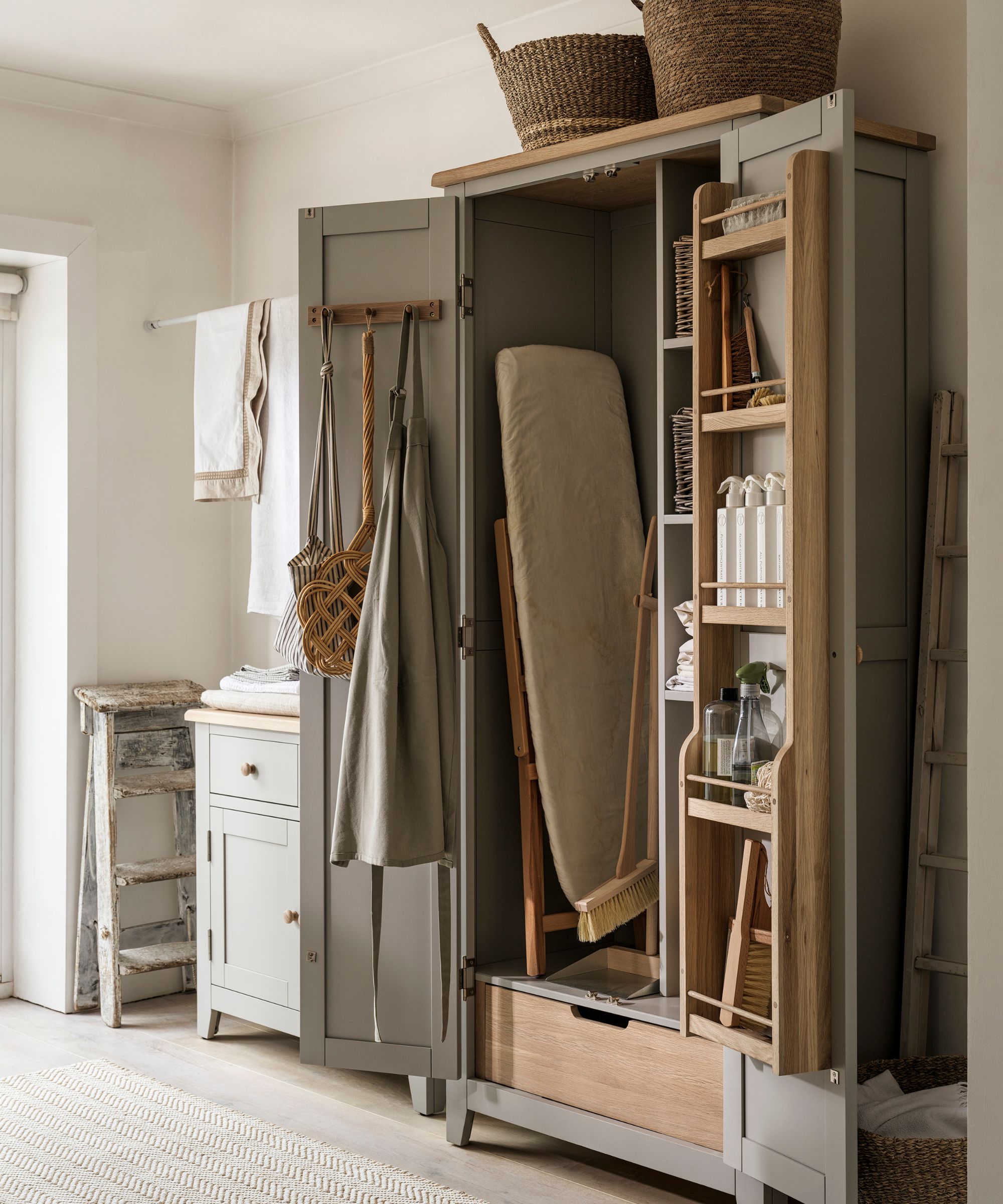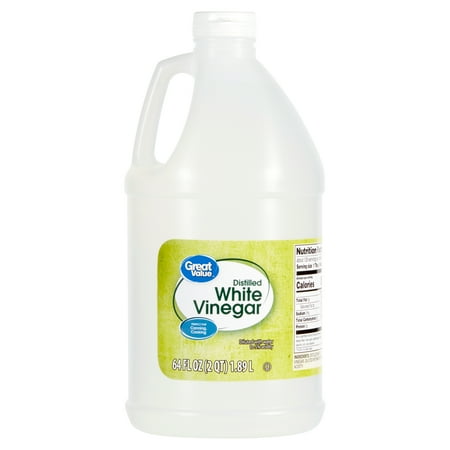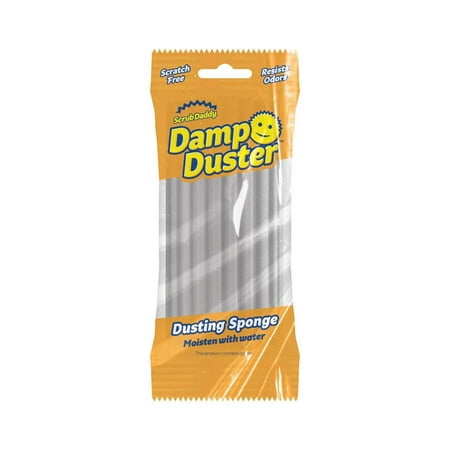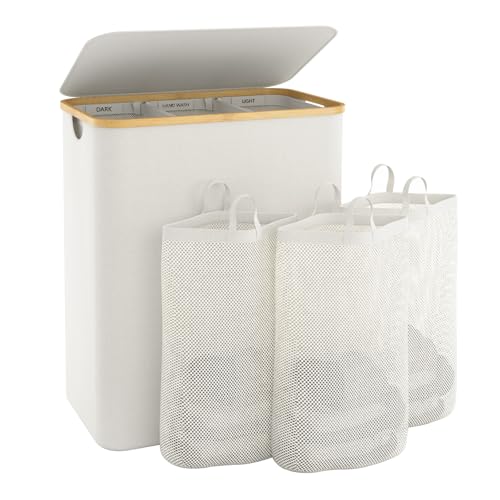
Not all habits are good ones – especially when it comes to cleaning. That's why professional cleaners are urging us to quit these five cleaning habits for an easier life.
From boundaries to over-exertion, these five habits can quickly lead to burnout, exhaustion, and a general hatred of your chores.
Here, the experts explain how to quit, and the cleaning tips you should try instead to bring some relief. They're simple to implement but high on impact.
Cleaning habits to quit for an easier life
1. Cleaning everyday

It's more than okay to not clean your home every single day, especially when you're feeling exhausted. The bare minimum to help your brain, whether that's a light tidy or leaving everything until the morning minus your 'must-tackles' is enough.
Muffetta Krueger, professional cleaner and owner of Muffetta's Housekeeping, says 'Your home doesn't need to be perfect 24/7. It's better to focus on maintaining an achievable cleaning routine that works for you and your household.'
Something I've found to be effective when cleaning my home is to do what I call a "chore dump". I take a notepad like the ones in the Joyberg 4 Pack of Magnetic Notepads from Walmart and empty my brain of every lingering chore I feel my home would benefit from having done: taking out the trash, cleaning the stove, etcetera. Then when I have more energy to tackle cleaning I can just pick something from the list. I usually begin with a smaller task like taking out the trash to build momentum and make my to-do list less overwhelming as it doesn't take much time but makes a visible difference to the cleanliness of my home.
2. Not setting boundaries

If you're anything like me, once you start cleaning you notice more things that need tackling too, and a 10-minute task turns into hours.
For this reason, it's important to set boundaries when you clean, especially if you're already feeling too busy to clean your house, so you can focus your time and energy on getting the essentials in order first.
Reuven Noiman, owner of On Time Steam Cleaning, says, 'Learning to say "no" to non-essential cleaning tasks that drain your energy and impact your mental health can be tough but incredibly helpful.'
Inspecting your home and making a "chore dump" before cleaning anything is one way to assist with this, as your brain will feel a bit better knowing everything is noted down and will get tackled at some point.
Setting timers and using the five-minute cleaning challenge, or the 30-minute friday cleaning hack can also act as a good form of accountability as the alarm will remind you when the time you allocated for the chore is up. I like this Secura 60-Minute Visual Timer from Amazon as it provides a clear visual of how long you've been cleaning and can help you avoid the screen time distractions that come with using the timer on your phone.
3. Comparing cleaning standards

Everyone's lifestyles and homes are different, including how often they clean and how they approach cleaning. While it can sometimes be helpful to look online to get motivated to clean, comparing your home with someone else's in any way, including cleanliness, will only bring negativity. So it's important to instead focus on doing what's best for you and your household.
Reuven says, 'Comparing yourself to others can lead to unnecessary stress and decreased motivation. Instead, focus on your own space and creating an achievable routine that works for you.'
You may find that a Sunday reset where you deep clean your house is effective. Or perhaps switching out some of your cleaning sprays for quick-to-use surface wipes such as Clorox Bleach-Free Disinfecting and Cleaning Wipes from Walmart is an effective cleaning shortcut that cuts the time your cleaning takes down. Whenever and however you clean, what's important is that it works for you and helps you get the job done.
4. Doing dishes immediately

If you're feeling super tired, closing shift routine tasks such as washing your dishes can wait until the morning. Yes, it may not be a preference to wake up to a sink or dishwasher filled with dirty dishes, but the world will not end and you can wash up your dishes tomorrow.
Muffetta says, 'If you’re too tired, leave them in the sink overnight. It’s okay. Giving yourself permission to rest and recharge is just as important as cleaning.' Once you're properly rested you'll be in a better head space to clean, too.
If you're leaving dishes in the sink overnight we recommend soaking any non-metal cookware with food residue to stop it from sticking, so you can spend less time cleaning in the morning. Add a few drops of gentle dish soap like the Seventh Generation Free & Clear Liquid Dish Soap at Target, before filling the cookware with water.
Then in the morning, rinse everything out with clean water before placing items in the dishwasher or scrubbing using a non-abrasive sponge. The Scotch-Brite Delicate Care Scrub Sponges from Target won't damage your items.
5. Buying too many cleaning products

Cleaning can be an overwhelming task, and it will only become more overwhelming if you have a sea of cleaning supplies.
Owning lots of cleaning supplies can feel hygienic, setting you up to tackle all sorts of grease and grime. But if you have so many that it stresses you out or you struggle to find what you're looking for, it may be worth seeing where you can pare down.
Karina Toner, professional cleaner and operations manager at Spekless, says, 'It’s easy to think you need a separate cleaner for every surface, but all those bottles just create clutter and complicate your routine. Most messes can be tackled with a good all-purpose cleaner, cleaning with vinegar, or cleaning with baking soda. Cutting back saves you money at home, frees up space, and makes cleaning way less overwhelming.'
When buying products, we highly recommend picking non-toxic cleaning products where you can, such as the EWG-certified non-toxic Attitude All-Purpose Cleaners, from Walmart, or the EWG A-rated Seventh Generation Disinfecting Spray, also from Walmart. These cut out harsh chemicals while offering a quick grab-and-go option for most surfaces in your home.
Keeping your cleaning supplies organized and contained to one cupboard or shelf will also help you find what you need more quickly, and reduce the risk of shopping for duplicates.
What to shop

White vinegar is one of the best versatile cleaners for your home. It deodorizes, breaks down grease, and disinfects without the need for harsh chemicals.

Picking the right cleaning tools also helps to make cleaning easier. The Damp Duster picks up dust, rather than spreads it around, for quick cleaning that makes an instant difference to your home.

Setting up systems to keep your home neat will also help to make cleaning easier. This pre-divided laundry hamper, for example, sorts clothes for laundry as you take them off, so laundry day is quicker and less overwhelming.
Meet the experts
If you're still feeling under the weather and struggling to keep up with cleaning, we've all been there. To save spots on your chore schedule, we asked professional cleaners which places at home you do not need to clean regularly. So next time you're wondering where to start, these suggestions can be taken out of your regular cleaning rotation guilt-free.







